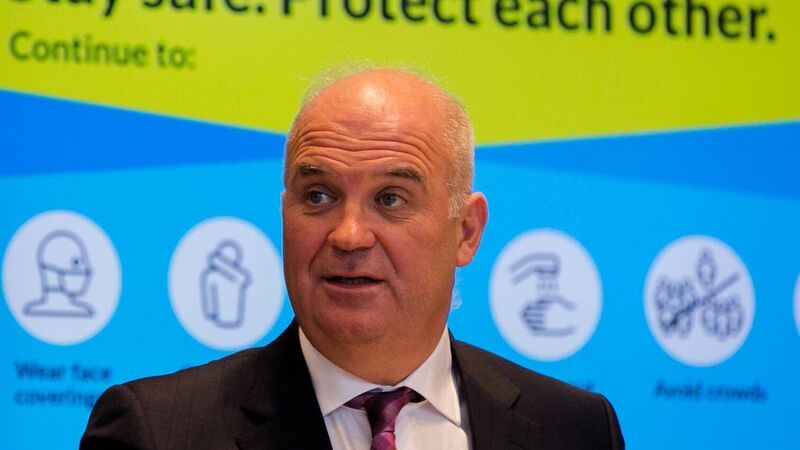Nphet: Action needed to protect 'core priority' of keeping schools open

Dr Tony Holohan gave Health Minister Stephen Donnelly an update on the health service, saying that the test and trace system is now operating at surge capacity and is 'under severe pressure'. Picture: Gareth Chaney /Collins Photos
The National Public Health Emergency Team will meet next week to decide if more restrictions are needed to curb the spread of Covid-19.
In its latest letter to Government, Nphet has recommended that children's playdates or gatherings be avoided for two weeks and that children above third-class wear masks in class.










